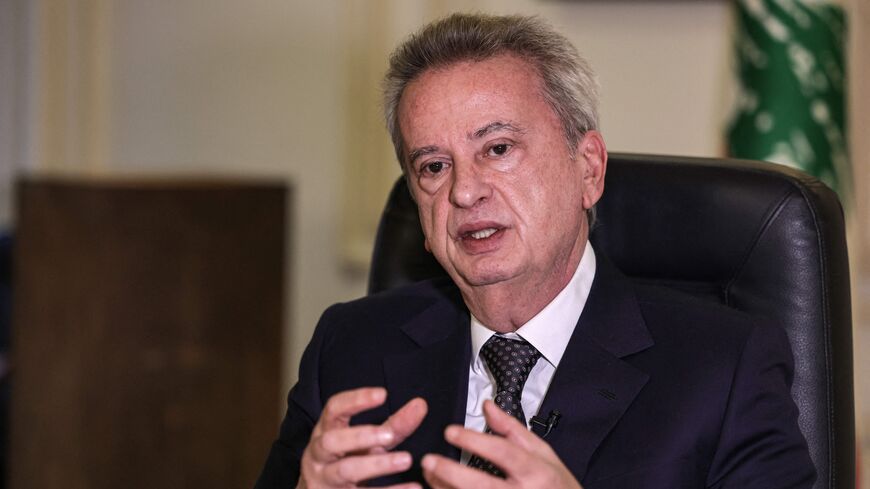BEIRUT — The French judiciary issued on Tuesday an international arrest warrant against Lebanon’s central bank governor, a source close to the case told Agence France Presses (AFP), after he failed to show up at a hearing in Paris, where French prosecutors were planning to present fraud and money laundering charges against him.
Riad Salameh, 72 years old, is currently being probed by Lebanese authorities and European countries including Switzerland over alleged money laundering. A delegation of European investigators has visited Beirut three times in the past months to question the governor and his associates who are suspected of embezzling more than $300 million in money transfers to an obscure offshore company between 2002 and 2015.
Salameh, who maintains his innocence, condemned the French judge’s decision, saying it violates the most basic laws.
“The French investigation violated a fundamental principle related to the confidentiality of investigations,” he said in a statement, adding that he will appeal the decision.
Of note, Lebanon does not extradite its nationals. However, Salameh risks being arrested when traveling to other countries.
Salameh's term ends in July. He has been in office since 1993 and reportedly he has no plans to seek another term.
Many blame Salameh’s financial policies at the central bank, which he has headed for three decades, for the economic collapse ongoing in the country since October 2019. Popular anger has also grown against the country’s political elite over its failure to address the crisis.
As Lebanon grapples with an economic crisis coupled with a political stalemate, Friday's Arab League summit in Jeddah is expected to include discussion of the troubles in the small Mediterranean country.
Diplomatic sources told the local Al-Joumhouria newspaper on Tuesday that the Lebanese file will be on the agenda of the upcoming meeting. They said its final communique will include a pledge of support to help the country overcome its crisis and restore security and stability.
Lebanon has been without a president since Michel Aoun’s term expired in October 2022. Aoun, a staunch ally of Hezbollah, presided over the country’s financial meltdown and economic collapse.
Political bickering has hindered the election of a new president. The powerful Iran-backed Hezbollah movement and its allies insist on the election of Suleiman Franjieh, who is known to have close ties with the Assad family in Syria. Opposition parties close to the West have refused to vote for Franjiyeh.
After 11 parliament sessions — the last of which was held in January — international and regional actors, including France and Qatar, have stepped up their meetings with Lebanon’s politicians in a bid to break the presidential stalemate.
Last week, parliament speaker Nabih Berri called for a June 15 deadline to elect a new head of state. In a statement released last Wednesday, he said that the "regional and international climate" for a vote was "encouraging" and expressed hope that the risks posed by the leadership vacuum in the central bank would galvanize election efforts.
On Monday, a number of cart vendors in Mina, a neighborhood of Tripoli in the north, protested in front of caretaker Prime Minister Najib Mikati’s house, calling on him to reverse the municipality's decision to ban them from a popular street in the city.
The Mina municipality had issued warnings to all the cart vendors on the Mina corniche, asking them to remove their carts and kiosks by Tuesday.
The protesters burned tires and blocked roads around Mikati’s house, condemning the decision as unjust. They called on Mikati to help them find an alternative source of income as hundreds of families rely on these carts as their only source of livelihood amid the deteriorating economic situation.
Correction: May 16, 2023. An earlier version of this article said Salameh had been in office since 1999; rather, he has been in office since 1993.







